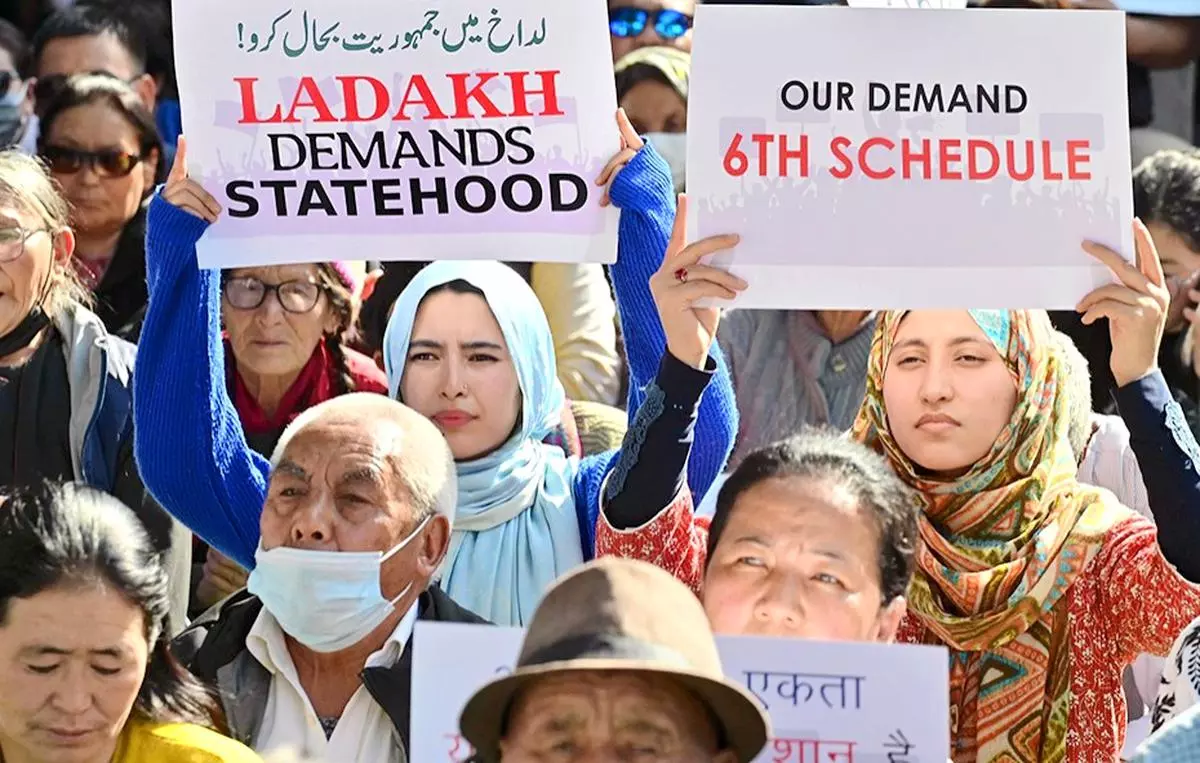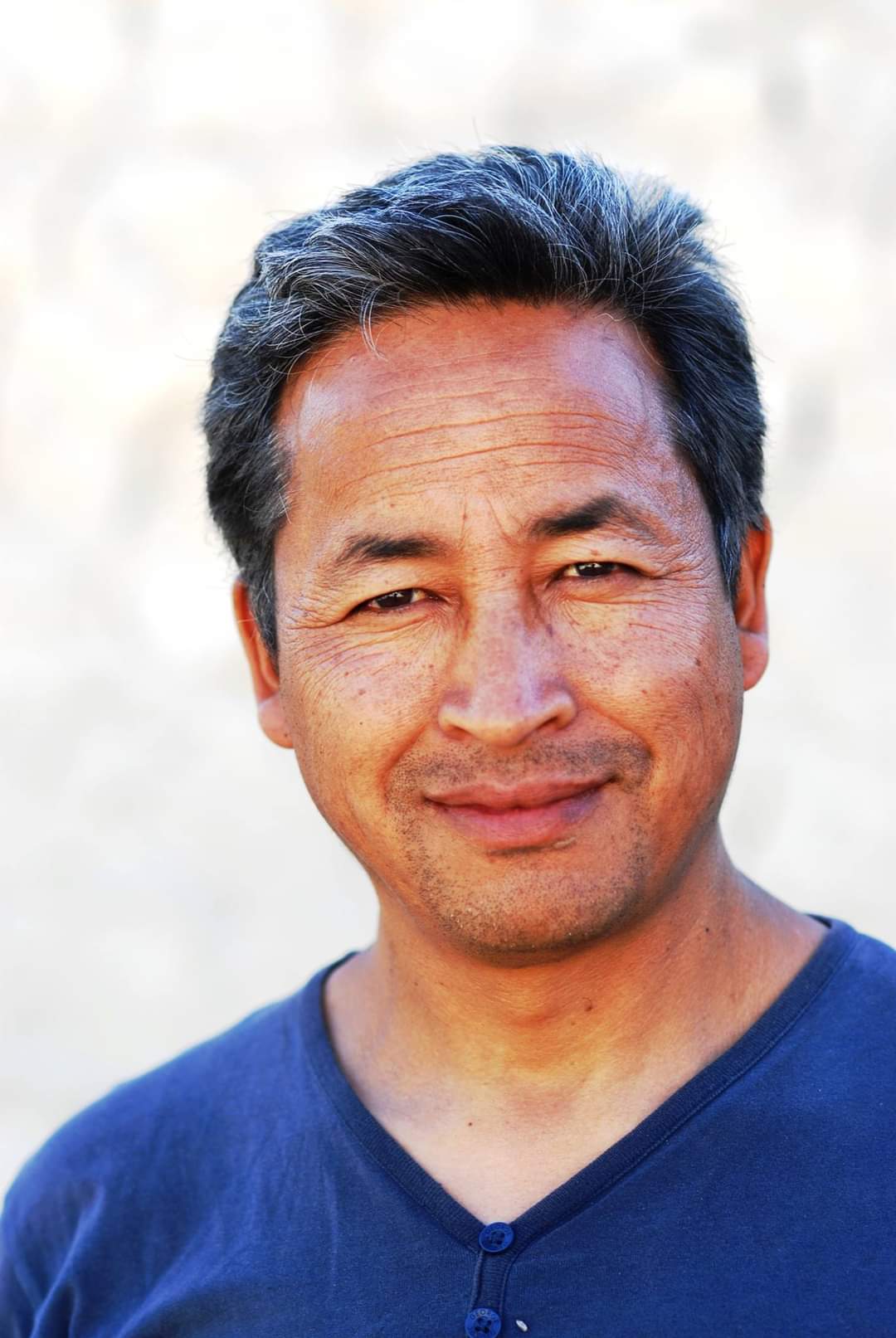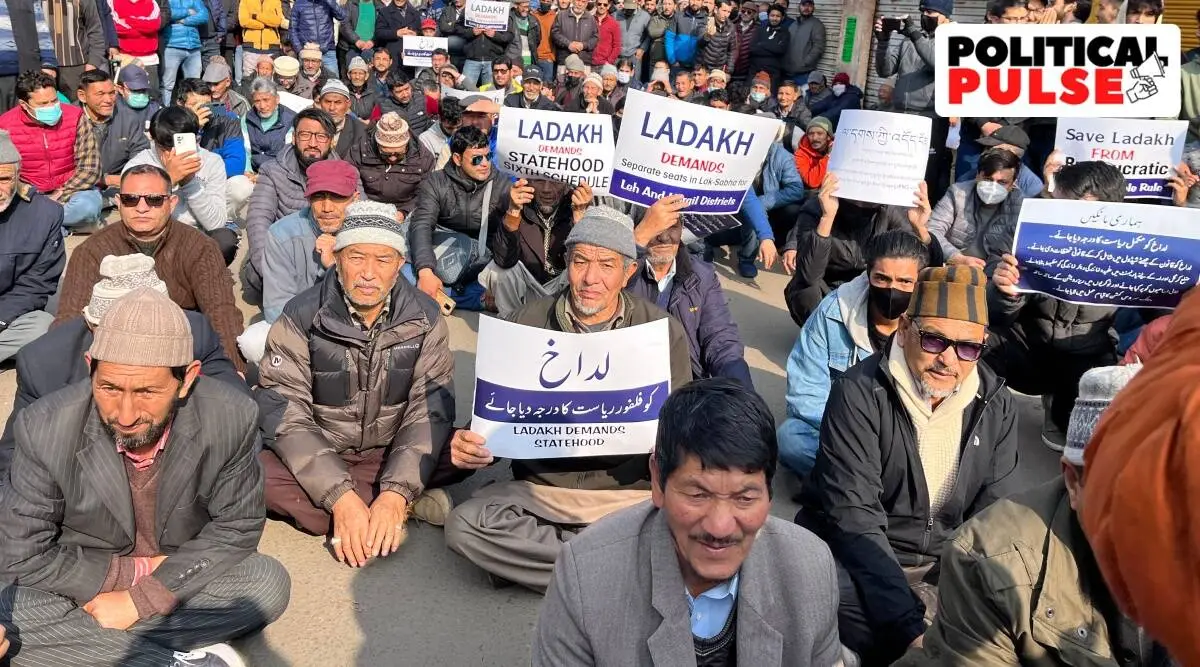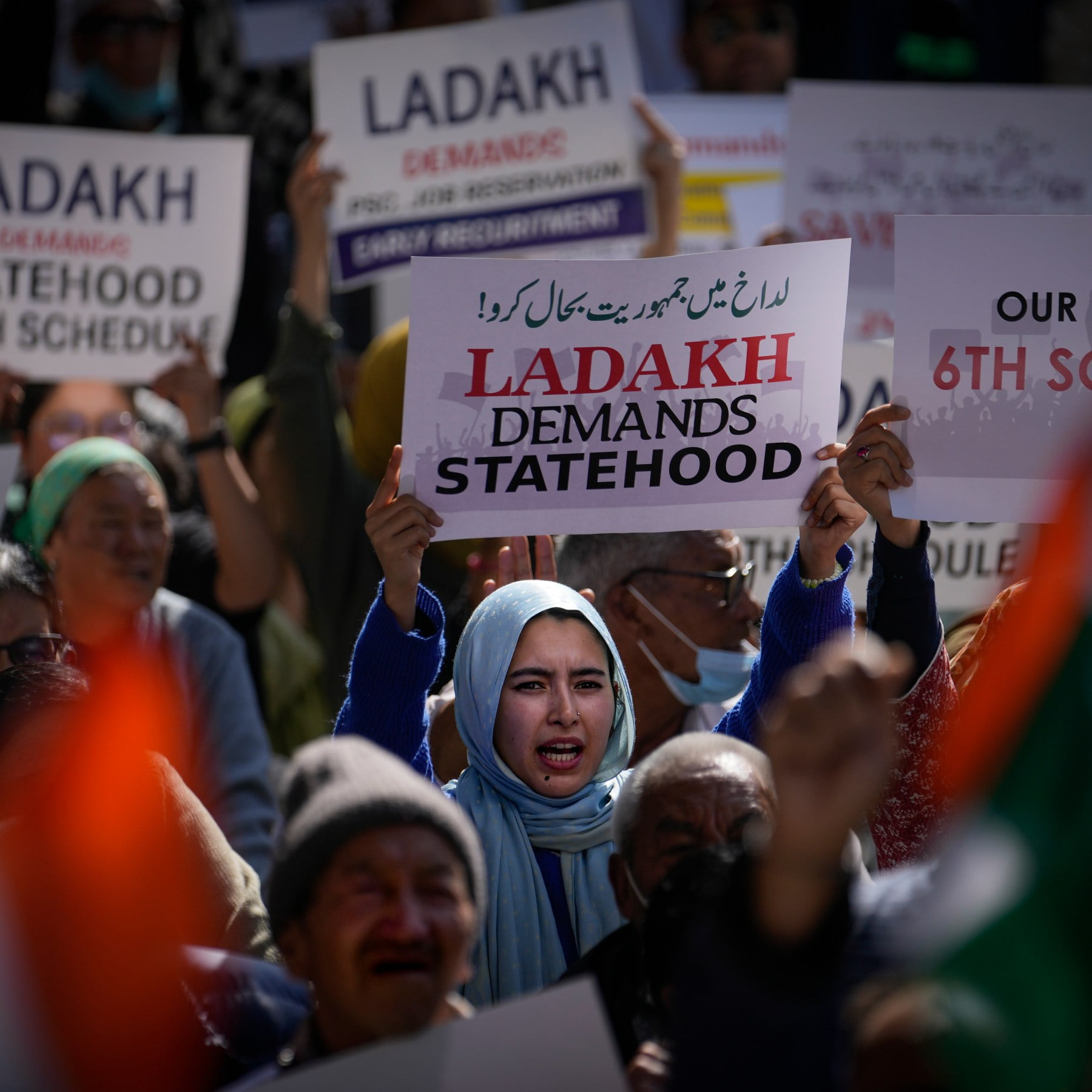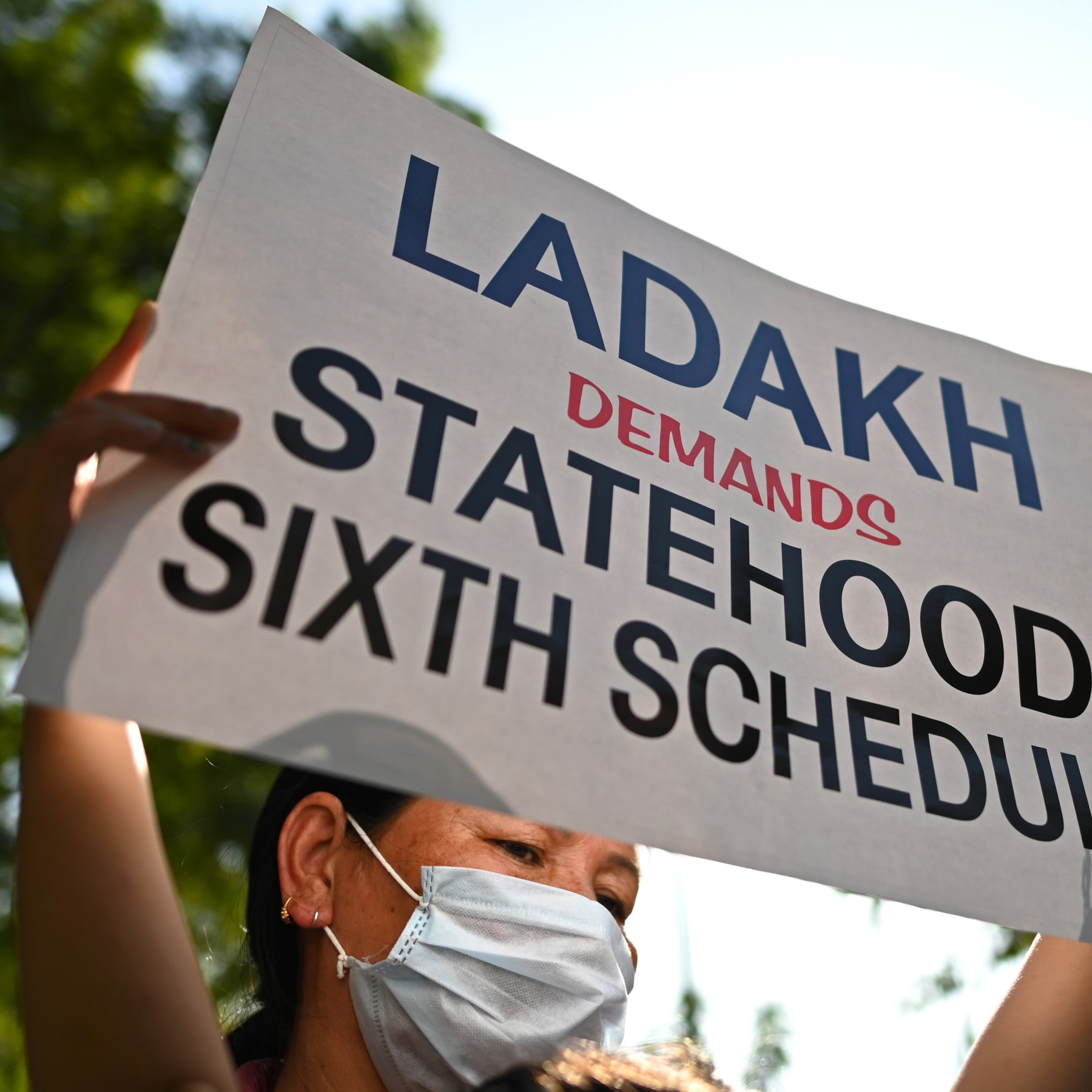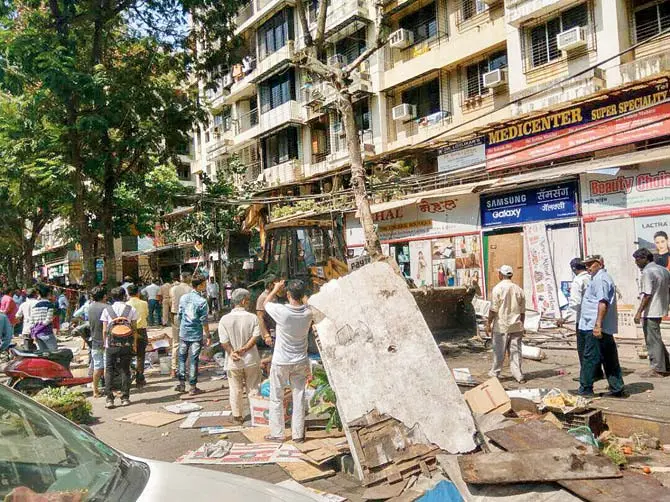The renowned Ladakhi educator and environmentalist Sonam Wangchuk has been on a hunger strike since March 6th. 16 days have passed since then. The temperature in Ladakh is currently dipping below 0 degrees. The hunger strikes are happening to raise the demands of the people of ladakh. The demand is for the protection of their identity and constitutional status.
Thousands are gathering to support Wangchuk under the open skies at Leh’s Nawang Dorje Memorial Park where this demonstration is taking place.
Thousands are gathering to support Wangchuk under the open skies at Leh’s Nawang Dorje Memorial Park where this demonstration is taking place. On February 19, 2024, there were talks between a representative group and the government. Prior to that, the central government had also formed a high-powered committee.
The rounds of talks happened between February 19 to 23. Another round of talks took place on March 4 but no consensus could be reached. On March 6, several organisations in Leh had called for a shutdown in Ladakh. Since then, Sonam Wangchuk has been continuing his hunger strike and demonstrations have been going on. During this time, this demonstration has received support from two major socio-political organisations here – the ABL (Apex Body Leh) and the KDA (Kargil Democratic Alliance).
Breaking down the key demands
These protestors have four demands. The first demand is that Ladakh should get legislative assembly status like Jammu and Kashmir. The second demand is to include Ladakh under the 6th Schedule of the Constitution. The third demand is to increase one more parliamentary seat in Ladakh and the fourth demand is to bring the Public Service Commission to Ladakh.
Why a legislative assembly for Ladakh?
Let’s discuss each of the four demands one by one. The first demand is that when Article 370 became ineffective on August 5, 2019, Ladakh was made a union territory without a legislative assembly. Now, the people here want their own legislative assembly. Regarding this, Sonam Wangchuk himself says that ever since independence, the demand of the people of Ladakh has been to separate them from Jammu and Kashmir because the people of Ladakh always felt that in this relationship, their role had become that of a younger brother and their interests were getting affected.
Sonam further adds ‘States have always been formed on a linguistic or cultural basis. I understand that India has now become a mature democracy, a confident nation. So I do not think there is any problem with granting statehood to Ladakh.’ On August 5, 2019, Ladakh did get separated from Jammu and Kashmir but did not get a legislative assembly. Ladakh is very unique culturally and geographically, 97% of the population is tribal. This is the primary basis of their argument for statehood.
The 6th schedule and its relevance
Another demand is regarding the 6th Schedule. Sonam Wangchuk cites the BJP’s 2019 election manifesto which promised Constitutional safeguards for Ladakh under the 6th Schedule. There has been no progress made on this promise since then. Under Articles 244 and 275 of the Constitution, special provisions have been made for tribal areas. Four states in the northeast – Assam, Meghalaya, Tripura and Mizoram – have their tribal areas administered under the 6th Schedule.
Under this, there is a provision to form autonomous district councils in these areas. These districts have their own legal, judicial and administrative powers, meaning they can make their own laws. This schedule also allows for multiple autonomous councils to be formed if there are different tribes within a district, or one council per autonomous district. This council has full authority to make rules and laws for the district. In simple language, this means giving additional constitutional powers or special status to tribal population areas of a state for the purpose of protection.
The demand for 6th Schedule in Ladakh is driven by the protesters’ belief that after inclusion, activities like mining won’t happen there. Their argument is that industrialists want to exploit the hilly regions, and to protect Ladakh from this, the special powers of 6th Schedule are needed. This would allow Ladakh’s autonomous council to make rules preventing activities like mining.
Demands of representation and public service commission
There is also a demand for representation. Protestors think that their local politicians have no say in Policy. The policies are being decided in Delhi and implemented in Ladakh. Ladakh’s total population is just over 3 lakh, it has two districts Leh and Kargil, but only one Lok Sabha seat. The people of Ladakh want one more seat to be added. If that happens, it will help strengthen their demand for a legislature as well. But is it possible to increase one Lok Sabha seat? We see that in a state like UP which has 80 MPs, one MP is coming from a place like Ladakh. In the last session some MPs were disqualified, which shows the value of one MP.
An MP for a region like Ladakh, whose territory spans 59,000 sq km area, would face geographical challenges in covering the entire area with just one seat.
An MP for a region like Ladakh, whose territory spans 59,000 sq km area, would face geographical challenges in covering the entire area with just one seat. Protestors think that the demand for at least two MPs seems justified so that at the central level where policies are made, people have some representation there because they claim that in Ladakh today, the political circumstances are such because the policy making is ignoring Ladakh’s uniqueness.
As they say, a central state jacket cannot be implemented uniformly across all tribal areas, the needs of all geographical areas are not the same. To implement a central tribal policy in Ladakh creates many problems. Protestors emphasise that they need two MPs – one for political representation of Ladakh’s people, and the second to help ministers at the central level understand the uniqueness here.
Let’s understand the fourth demand. Protestors says that earlier students of Ladakh used to apply to the Jammu and Kashmir Public Service Commission, but after Ladakh became a separate UT in 2019, there has been no recruitment of gazetted officers here till date. Before Ladakh’s separation, people from Ladakh used to get recruited through the J&K Public Service Commission, but that is not happening now after becoming a separate UT. That is why Ladakh wants its own Public Service Commission.
Priyanka Gandhi has recently supported the demands of the people of Ladakh, saying it is the government’s responsibility to fulfill these demands.
Priyanka Gandhi has recently supported the demands of the people of Ladakh, saying it is the government’s responsibility to fulfill these demands. On the other hand, BJP’s spokesperson in Ladakh says that the way things are being presented is not true. It was the BJP that made Ladakh a separate UT from J&K. Work is ongoing in Ladakh on many other issues too. As for the demand for statehood, it is not possible right now as, according to the spokesperson, they do not have adequate resources to become a state.
Wangchunk’s appeal and the way forward
With unwavering determination, Wangchuk released a video at the end of the 16th day of his hunger strike and directed his appeal straight to Prime Minister Narendra Modi. His words carry the weight of countless Ladakhis who endure harsh climates, as he begs Modi to hear his message and requests everyone to amplify it so that it can be noticed by the authorities.
In the video Wangchuk portrays a heart touching picture of Ladakh’s environment, where protestors are seeking solace beneath the open sky in bone-chilling temperatures. He underscores the urgency of the situation, where temperatures plummet to -10 to -15 degrees Celsius, highlighting the dire need for action very soon.
Wangchuk, by his appeal, reminds of the past promises made by the Bharatiya Janata Party. He reminds Modi of commitments made during electoral campaigns, pledges to safeguard Ladakh’s environment, and protect its indigenous communities enshrined in constitutional amendments. However, he laments the stark reality of unmet expectations and breeding disillusionment among Ladakhi.
As we near the 2024 Lok Sabha elections, one can only hope that the situation in Ladakh, which has been blessed with natural beauty and is guarding our country’s borders, improves soon in the interests of citizens and local circumstances through constitutional means.
About the author(s)
Rahul is a PhD candidate at the Department of Humanities and Social Sciences, MNIT Jaipur. His research focuses on democratic decentralization, local governance, and political-administrative dichotomies. He is also interested in contemporary Indian socio-political thought and alternate histories, particularly those highlighting social and spatial marginality. Rahul holds a master's degree from the Faculty of Social Sciences at South Asian University. He has a deep passion for Hindi literature and enjoys discussing it at length.
